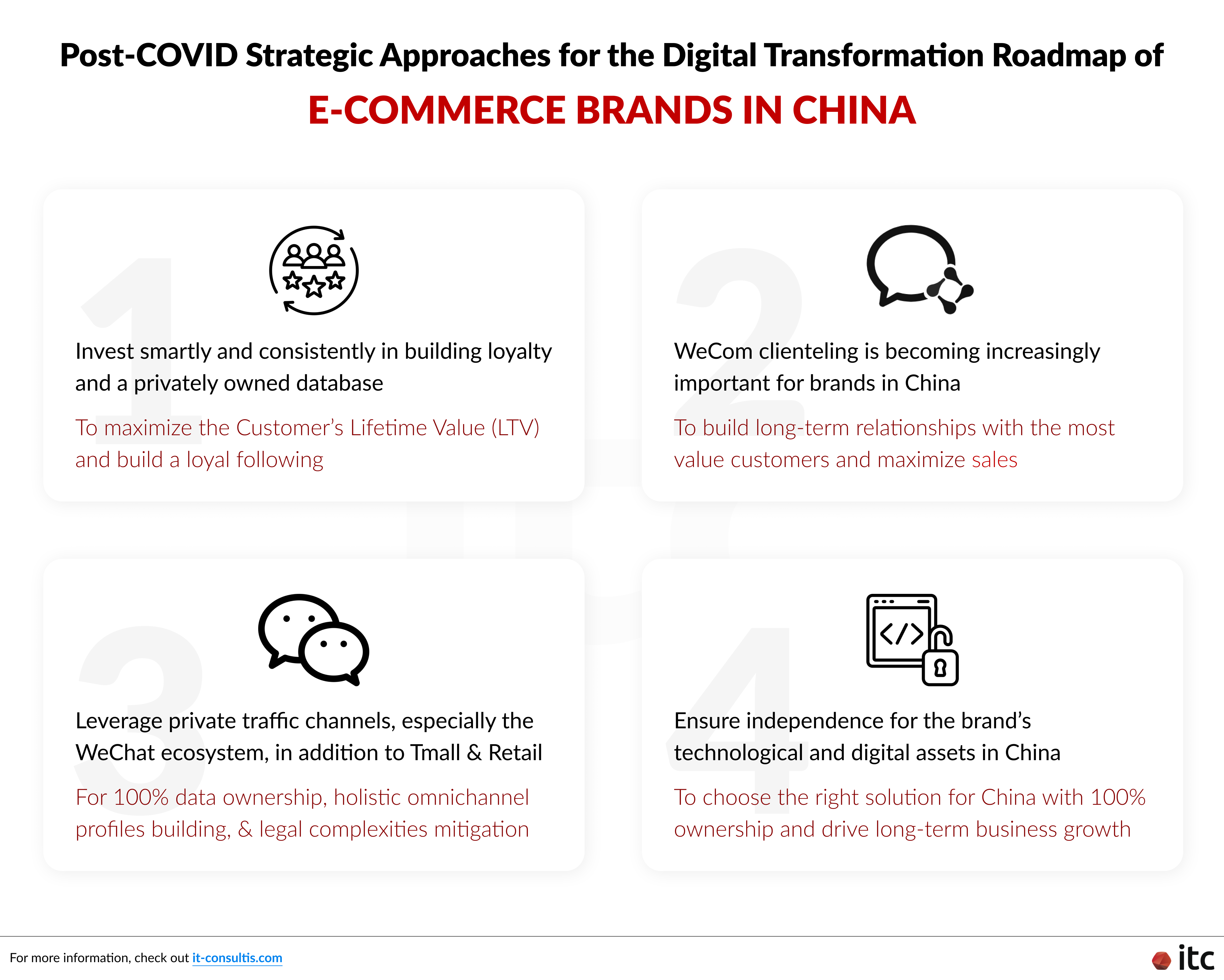Blog/Change Management/ITC on BFM Business: Post-Covid Strategic Approaches for eCommerce in China
In November 2022, Aurelien Rigart, Co-founder & Vice President at IT Consultis (ITC), joined BFM Business to review the impact of the COVID-19 pandemic and the different challenges e-Commerce brands have been facing in China before and during the border re-opening.
Below are the 4 key takeaways from the discussion:
Table of Content
- 1. Investment in Loyalty and Private Traffic Management
- 2. Leverage WeCom to Maximize Top and Bottom Lines
- 3. Growing Challenges with Offline Retail and Public Traffic Marketplaces
- 4. Independence for Brands’ Technological and Digital Assets in China

1. Investment in Loyalty and Private Traffic Management
Brands that will win in China are those that invest smartly and consistently in building loyalty and a privately-owned database.
By personalizing the customer experience via targeting and retargeting strategies, brands can maximize the Customer’s Lifetime Value (LTV) and build a loyal following powered by active engagements and re-purchases.
How? They need to develop their own database and continuously enrich their targeted user personas to more accurately tailor customer nurturing approaches.
2. Leverage WeCom to Maximize Top and Bottom Lines
Clienteling through WeCom is becoming one of the key elements for brands to maximize sales.
With its interoperability with the WeChat ecosystem and versatile clienteling features, WeCom (used to be WeChat Work) is a powerful tool for businesses to establish an official channel or portal to personalize communication and build long-term relationships with the most high-value customers.
For more information on the values WeCom can bring, check out the ultimate guide to WeCom clienteling in China!
3. Growing Challenges with Offline Retail and Public Traffic Marketplaces
While Tmall, JD.com, and other public traffic marketplaces are the preferred routes for many brands to enter the China market due to the high exposure and campaign opportunities, these channels and offline retail alone are no longer enough for brands to succeed in China in the long run.
In addition, brands also need to leverage private traffic channels, especially the WeChat ecosystem, to make sure they:
- Own 100% of the captured data
- Can leverage all touchpoints – public traffic, retail, WeChat, WeCom, etc. - to create a holistic omnichannel view of any customer
- Avoid rising legal complexities surrounding data collection and processing activities by having clearly defined and PIPL-compliant data flows
4. Independence for Brands’ Technological and Digital Assets in China
Many brands coming to China are often approached by local Chinese vendors that do not have their best interest in mind.
While most are aware of how different the digital system in China is, they may still get locked into closed-source solutions by tech vendors that discredit all global solutions, including those that actually work in China (e.g. Magento, Adobe Commerce, Drupal, Acquia, etc.)
However, brands are slowly but surely moving away from having their entire brands managed by a distributor or a Tmall Partner (TP) in China.
For their digital transformation roadmap, companies should connect with true Subject Matter Experts to learn what works best for their specific business needs and long-term strategic expansions.
By doing so, brands can become more independent with 100% ownership of their data and technological assets.
This would also allow them to easily switch partnering vendors and avoid getting locked in a disadvantageous system.
ITC would like to extend our warmest gratitude to Erwan Morice and BFM Business for the opportunity to appear in the program.

Click here to watch the full section of ITC on BFM Business.





